- Home
- Ella James
Here
Here Read online
H E R E
by
Ella James
For Peggy
Copyright © 2012
Ella James
All rights reserved. No part of this book may be reproduced in any form,
except for the inclusion of brief quotations in review, without permission
in writing from the author.
The author would like to thank Sarah Heller for her sharp eye,
and her family and friends for their support.
1
The day it happened, things were regular enough.
Halah, Sara Kate, and Bree had spent the night—a chilly October Friday we’d talked through until the sun rose, pink and soft across the Rockies. I awoke to Sara Kate’s knee in my back, sharp enough to poke a hole through my favorite Cream t-shirt. Halah and Bree were curled up on the floor, Halah’s pink subzero “hotsack” tossed over the Miley Cyrus bag Bree’s grandmother had given her the previous Christmas—the year we’d turned 15. Halah called the bag Miss Miley, and at sleepovers at Sara Kate or Halah’s house, I usually fought Bree for her.
This morning, Halah’s curly head stuck up, and her hazel eyes met mine. We grinned, then pounced on Bree, chanting “Miss Miley, Miss Miley, Miss Miley!” till Bree lurched up, her curvy body raining fragments of the popcorn we’d all munched and, later, crunched into my rug.
“Shhhhhh!” That was Sara Kate, lumbering up and glaring at us. She was never a morning person, and she’d been even less one since she’d started hanging out with Ami McVea of the multi-colored dreadlocks and Turn Off Your Radio (KILL THE MACHINE) bumper sticker. S.K. hadn’t actually told me this—I was only her best friend, after all—but I’d overheard her talking to Ami after orchestra practice, saying something about midnight rides, and I happened to know from my college cousin West that Ami and S.K. had been sneaking out on weeknights, riding into Denver to go to (what else?) indie music shows.
“You’re riding with the big dawgs. This ain’t no rusty banged up Beetle,” Halah drawled. She had the most ridiculous faux Old West accent I’d ever heard, and she was referencing Ami McVea’s VW bug. We—the quad—had called ourselves the big dogs in years past, although I couldn’t quite remember why.
Bree ambled over and barked in Sara Kate’s ear. S.K. batted her off, then slid out of my bed and pulled a Pop Tart out of her overnight bag; she’d always had a thing for sweets. Halah braided Bree’s hair, and S.K. painted her toenails with my electric lilac polish, and I straightened my room and made us waffles, which we ate on the downstairs couch, watching Jeopardy re-runs that Halah killed, cause that girl was awesome with random facts, despite what she wanted our school to think. (Re: brainless, badass, and beautiful).
Half an hour later, the four of us stood in the pebbly indention of my driveway, a time-shorn path through the rough grass that dusted the foothills of the mountains.
I looked at Bree and Halah, a unit within our unit, best friends just like S.K. and I. “You guys be careful.” I smiled tightly. “Halah, spare Bobby the crotch shot.”
Bobby Malone was this senior who’d cheated on one of Halah’s cheer teammates—Annabelle Monroe, the blonde cheerleader archetype—and also, apparently, the bull’s eye in the day’s paintball meet-up.
Halah grinned wickedly. “I’m not going for his crotch, Milo. I’m going for his little tiny balls.”
“That’s disgusting.” Bree’s nose scrunched.
“Keep her out of trouble, mkay?”
Bree shrugged. She had a piece of popcorn smashed under her breasts.
“I want pictures,” S.K. called, as Hal and Bree set off.
“Only if they can’t be used against us in a court of law,” Halah called back.
They drove away, aiming for the far-off fence at the front edge of Mitchell property. Hang a left, and they’d be on a gravel road that ran below the massive Front Range, just a tiny ribbon if viewed from the top of the peaks, up by turbines.
Mitchell Turbines.
Mitchell Windfarm.
Home.
S.K. was never much for goodbyes, and after all, we didn’t know that’s what this was. That bright gray morning was just an ordinary Saturday, on an ordinary weekend in our junior year at Golden Prep, the only decent private school our side of Denver.
“Have fun with Bambi,” she said, and tossed her black hair, like the glossy, perfect mane annoyed the heck out of her. (For the record, it really did).
“Have fun with Jackie Chan.”
That would be her Tae Kwon Do instructor, a big, smiling hottie whose actual name was David.
S.K. arched one brow. It jutted up over the frames of her black, square-ish glasses.
“Sayonara,” she said.
And that was that.
*
My plan for the afternoon involved a dart gun, a tracking bracelet, and my beat-up copy of The Great Gatsby.
I had a seasonal reading plan I’d stuck with each year since fifth grade: Walden in the spring, Pride & Prejudice in the summer, The Great Gatsby each fall, and Wuthering Heights every winter (my dad's dad, Gus Mitchell, had been a tenth-grade English teacher). I liked to imagine the rock-strewn, fir-dotted fields that rolled out toward the mountain range as my moors. In the privacy of my favorite woodsy spot, I savored my cold-weather reading with a gusto that would humiliate me in the halls of Golden Prep.
With Gatsby in my pack and the dart gun in my gloved fist, I drifted through the fields, watching fir needles tremble, tracking birds as they rose and fell, formed flocks and scattered. They’d be leaving in the next month, before it got too cold for anything sans fur.
I wondered if my herd of mule deer would already be there: by the creek that threaded through the northeast edge of our land. I hoped not. If they were waiting, I couldn’t sneak up on them. Encroaching winter made it especially important that I tag the last of the year’s fawns—now. When the snow came, their grazing patterns changed. The creek would ice over and the herd would scatter, seeking out the Bancrofts’ hot springs or one of the freeze-proof waterfalls just north of our property, on the land owned by Mr. Suxley.
As I walked, arms stuck in the pockets of my dad’s old hunting coat, I thought back over the night. I was a cataloguer, but like too many other times lately, I felt like I didn’t have enough to file. I seemed to be moving at a different pace from all my friends. Halah—Halah with her unabashed love of Martin Lawrence movies and her closet full of oversized softball t-shirts—had shot off, three light years ahead of me. She had a senior boyfriend on the wrestling team, and she didn’t have a curfew.
Bree was just…Bree. I didn’t even have a scale for how she and I compared. While I thought about everything ad nauseum, Bree never seemed to think about anything that wasn't practical. The week before, she’d spent half of lunch on her phone trying to find the area's best dry-cleaner.
And then there was S.K. Sara Kate, my best friend. My other half. My favorite person on the planet—other than my Dad, who wasn’t on the planet anymore. S.K. who’d gone with (guess who?) Ami to ComicCon the weekend of my birthday. Who’d recently decided she needed more time by herself. “I’m getting too stressed out by all this stuff.” Stuff being me. The quad. Our fun.
Lately, the thing I liked best about this deer gig was how somewhere else it made me feel. With the sky over my head and the grass crunching under my boots, I could be anywhere. Add a book to the equation, and I wasn’t Milo Mitchell, girl pianist, airheaded over-thinker, tenth-grade chemistry straggler, secret wallflower, lover of anime. I was Catherine. Well… maybe someone slightly less insane. Daisy Buchanan? Okay, someone moderately less shallow. Haruhi Suzumiya.
Made-up (and insane!) though they were, those people knew what they were about. Knew what they wanted. Whereas me… I got my kicks tagging mule deer.
I pointed myself left, toward the mountains, and picked up my pace for the last half-mile to the pine grove. There was a bluff oak right at the entrance, beside a big pancake-looking boulder; next to the skinny evergreens, it resembled a pom-pom in mid-cheer.
Growing up, this had been my dad's favorite spot. He and mom had come to Colorado to build the turbines—Mitchell Wind Turbines, his own patented design—but his real passion was outdoors stuff. As a little girl, I’d gone tromping through the fields and scaling cliffs with him. He’d taken me to Yellowstone and Grand Teton, Death Valley and Yosemite, but he’d really loved to take me to the bluff oak.
“It’s an anomaly,” I could hear him say. “Supposed to be down South. Not out here with all the firs.”
And yet, it was.
I walked under its limbs and stared down at the etched stone marker:
Faulkner Dursey Mitchell
1964-2010
And then, under that, in tiny, sharp-edged caps:
IN WILDERNESS, THE PRESERVATION
OF THE WORLD
I didn’t like the marker, though I knew my dad had chosen it. In his absence, I’d grown irritated with the message. Preservation. What a stupid concept. My father wasn’t preserved under the headstone. He was gone, and he was becoming more and more gone all the time.
Still, I had come. Since that awful day almost two years ago, I’d visited the marker and the bluff oak often. Actually, I’d treated this place like Mecca until two months ago.
It had been the first Saturday after school had started. S.K. had spent the night, but left early the next morning for her first date with Ami. Halah was at a cheer retreat, and Bree was…somewhere. I don’t remember.
I’d left at the same time as S.K., and by the time I got to the pancake boulder I was falling asleep on my feet. I took a nap—the boulder was that flat—but maybe an hour later, I was jerked awake.
I felt like someone was over me—I felt breath on the back of my neck. I rolled right, off the rock, and jumped to my feet, ready to bolt. But no one was there.
I ducked a second later, because I felt it again, and then I yelped. A needle prick, but inside my brain. It was invasive, intentional. Prodding.
I felt like I was naked in front of the whole school.
I left immediately, and spent the walk home freaking out. But I found my way back the next day. And felt the same thing. It wasn’t as sudden, or as potent, but the feeling, like I was being measured, was still there.
As it was Wednesday, when I went back after half a week.
That’s when I decided I needed to find another way to feel close to Dad. So I called the Department of Conservation and Wildlife, posing as my mother, and got permission to continue his mule deer tracking project.
I had all his old folders, stuffed with diagrams and data, so it hadn't been hard to figure out who was who among the herd. After that, it was just a matter of coming out on Saturdays and tagging them.
It was easy to shoot the sedative gun, bring the deer down, and snap a bracelet over their hard, dark hooves. I spent my weeknights, after studying, watching the gob of blinking lights move across my laptop screen. I knew where they slept and where they roamed. I knew where they went midday: the creek.
I made my way over to it now, ducking under broom-like spreads of fir needles, weaving through sap-dotted pine trunks, crunching over fallen leaves from the seasonal trees that blazed orange, yellow, and red between the firs.
I heard the creek before I saw it, a gentle tinkling like a bowl of glass marbles pouring out. The smell of dirt and pine filled my nose and throat. The cold air whipped my cheeks. The sunlight swirled in spirals over the leaf-strewn bank. I thought about Gatsby and felt a dorky burst of excitement. I was right at the start of Chapter 9—the last chapter. I’d gone through the book too fast.
Reading the end made me feel either bursting full or empty. I walked faster, hoping this would be a day that I could enjoy the story without letting it gnaw at me. Otherwise it was going to be a long afternoon.
My tree house hung above a bend in the creek. Dad and I selected the strongest tree for its base: a horse-chestnut on the other side. To get to it—if I didn't want to wade through chilly, waist-deep water—I had to climb a spiral staircase around a buckeye tree and sway across the rope-and-board bridge we made the summer after second grade.
The wooden stair rails were cold, even through my gloves. I paused at the top and surveyed the scene below. It looked like a high-def screensaver, birds shifting on branches, leaves tilting almost mechanically in a tranquil breeze.
With that thought—myself a pixilated winter girl moving slowly through a data forest—I slid my palms over the ropes and crossed the sanded cedar planks. The tree house was at the other side; it was a thatch-roofed dome attached to the chestnut’s trunk by beams that angled peaceably through its branches.
I pushed inside, surprised, as always, by how pretty it was here. The walls were warm cedar, and my Dad had built a bench that wrapped around the circular room. We used to get new cushions every year, but the green and red plaid we’d put out two Christmases ago would probably stay until the years ate through them. I had no plans to replace them.
I found my binoculars in the box where I’d left them, along with a blanket, a tin tub of almonds, and a little pile of air-activated hand-warmers.
I sat my pack down, grabbed the binoculars, and shed my gloves. Much as I wanted to stay warm, I couldn’t fire the darts with padded fingers.
I gave myself a few minutes inside the house, designed with small gaps in the floor in the floor for circulation, but no windows (to hold heat in). Then I stepped back onto the bridge and sat with my back against the door. My gaze roved the forest, picking out stray branches, odd-shaped stumps—anything that remotely resembled deer. Too early. I’d spotted them this morning near Mr. Suxley’s woods, where they sometimes bedded down. It would take a little while for things to happen.
I read. Nick Carraway, meeting up with Tom downtown. Leaving the West Egg. I sipped warm water from a metal thermos and tried not to think about my hunger, which couldn’t be satiated in nose-range of the deer. The sun climbed higher, raining a kaleidoscope of golden light over Dad’s bulky suede jacket and my camo pants. As I read, my hair sparkled in my periphery, a blanket of glossy brown, with red highlights glinting in the sun. I blew into my balled-up hands. Applied a scentless beeswax chapstick.
I couldn’t warm up. I cursed myself, Klingon swear words S.K. and I had looked up in sixth grade. Tracking deer was a terrible idea. I could be playing paintball.
I flipped to my favorite scene.
“Gatsby believed in that green light, the orgiastic future that year by year recedes before us. It eluded us then, but that’s no matter—tomorrow we will run faster, stretch out our arms farther… And one fine morning— So we beat on, boats against the current, borne back ceaselessly into the—”
I heard a loud crunch, and my eyes leapt from the page. Blitzen! The herd’s largest male had a star-shaped scar across his shoulder and a weathered-looking coat that made him look grandfatherly. He stood by a holly bush ten or fifteen yards away, sniffing the air, his nostrils snorting out puffs of steam. Right behind him was Madonna, the alpha female, and then Brutus, a younger male who sometimes challenged Blitzen. Soon they were all there, including little Ashlyn, one of the youngest fawns: my target.
Crap!
I should’ve been crouching, but I hadn’t expected them until closer to four. Since there was no way I could sight Ashlyn—or any of them—from my spot flat on my butt, I stood slowly and ducked through the bridge’s two rail-ropes, rising into a sort of squirrel-eating-nut position, with my arms up near my face and my feet positioned on the edge of the cedar planks. A lesser woodswoman might have fallen, or scared the deer, but I’d been doing this for years.
My fingers folded, steady, around the handle of the gun. I leaned my head down, peering through the sight. A breeze rocked the bridge; the rope ab
ove my head brushed against the top of my hair. My body felt pinched. Stiff. And then, finally, I had her. Ashlyn side-stepped, her small flank bumping into teenage Aiden’s long, strong throat. Aiden strode forward, and there!
In the moment that the dart shot out, I felt a rush of pure elation. As it sailed toward little Ashlyn, I watched the frozen herd, processing the milliseconds till the dart would hit, Ashlyn would fall, the rest would bolt.
But that’s not how it happened.
As my breath puffed out, creating a pale cloud that lent the scene a gauzy haze, I felt a bite of what can only be described as shock. My limbs and torso locked; my lungs went still. There was a flash of golden light, like a solar flare, except for one second it was all there was, all there ever would be.
Then it receded, twisting the trees’ shadows, mangling the forest floor. The creek spilled forth on fast forward. My blood boomed like a gunshot in my ears.

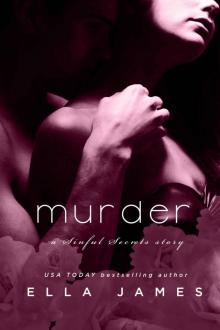 Murder
Murder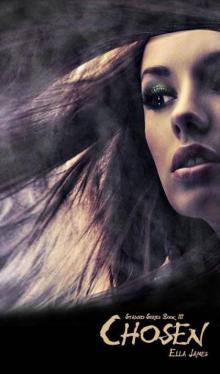 Chosen
Chosen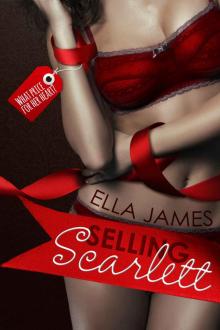 Selling Scarlett
Selling Scarlett Hansel, Part Four
Hansel, Part Four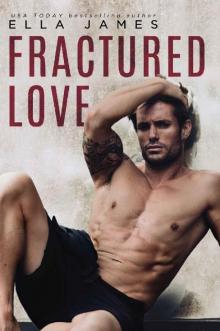 Fractured Love
Fractured Love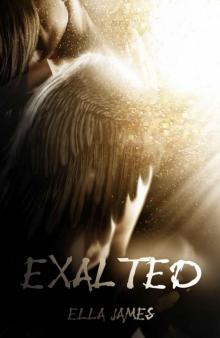 Exalted
Exalted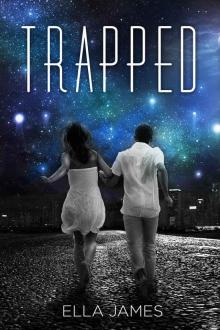 Trapped
Trapped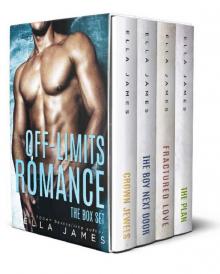 Off-Limits Box Set
Off-Limits Box Set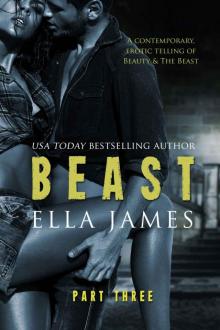 Beast, Part Three
Beast, Part Three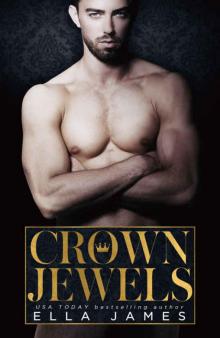 Crown Jewels
Crown Jewels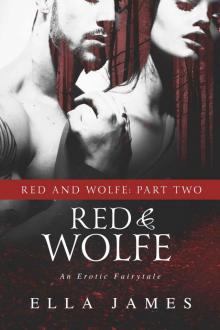 Red & Wolfe, Part II: An Erotic Fairy Tale
Red & Wolfe, Part II: An Erotic Fairy Tale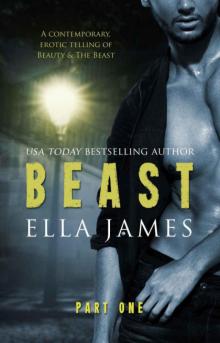 Beast, Part One
Beast, Part One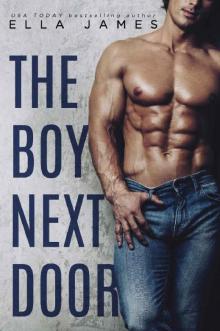 The Boy Next Door
The Boy Next Door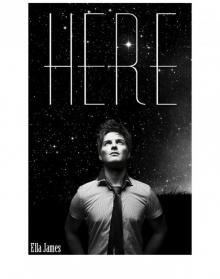 Here
Here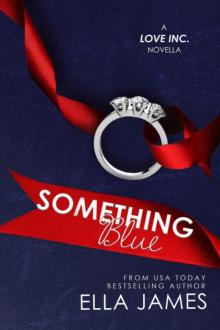 Something Blue
Something Blue Stolen
Stolen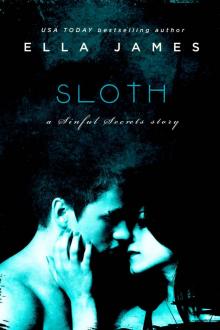 Sloth
Sloth Sexy Beast
Sexy Beast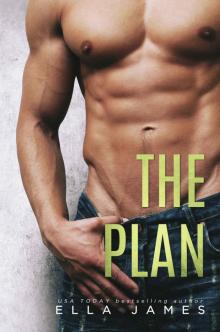 The Plan: A Standalone Off-Limits Romance
The Plan: A Standalone Off-Limits Romance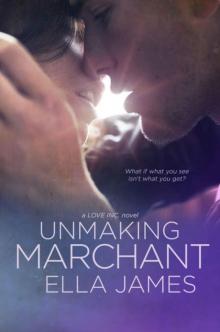 Unmaking Marchant
Unmaking Marchant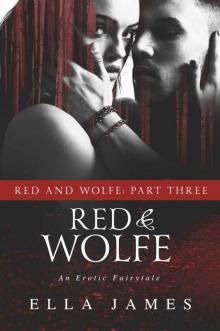 Red & Wolfe, Part III: An Erotic Fairy Tale
Red & Wolfe, Part III: An Erotic Fairy Tale Hansel, Part Two
Hansel, Part Two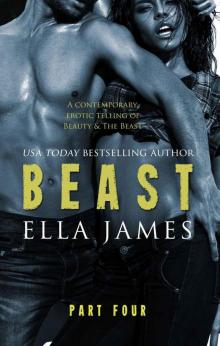 Beast, Part Four
Beast, Part Four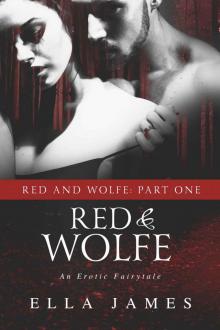 Red & Wolfe, Part I: An Erotic Fairy Tale
Red & Wolfe, Part I: An Erotic Fairy Tale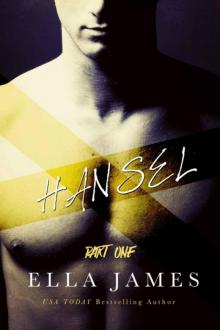 Hansel, Part One
Hansel, Part One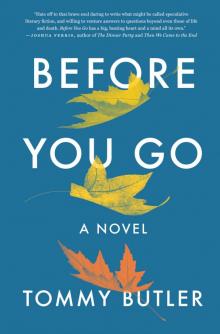 Before You Go
Before You Go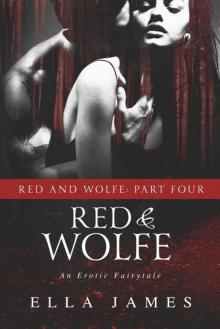 Red & Wolfe, Part Four
Red & Wolfe, Part Four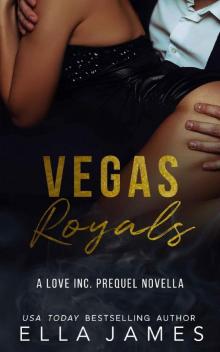 Vegas Royals: A Love Inc. Prequel
Vegas Royals: A Love Inc. Prequel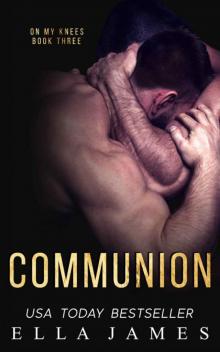 Communion (On My Knees Series Book 3)
Communion (On My Knees Series Book 3)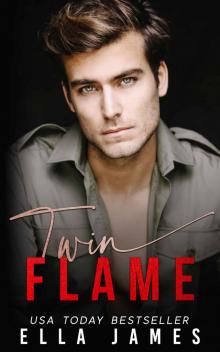 Twin Flame: A Dark Heart Prequel (Dark Heart Duet)
Twin Flame: A Dark Heart Prequel (Dark Heart Duet)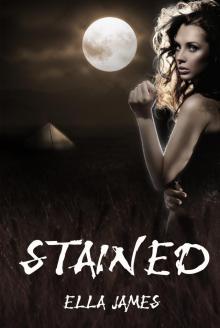 Stained
Stained Sloth: A Standalone Forbidden Romance
Sloth: A Standalone Forbidden Romance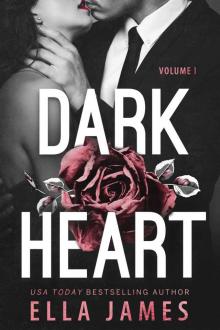 Dark Heart Volume 1: A Star-Crossed Mafia Romance (Dark Heart Duet)
Dark Heart Volume 1: A Star-Crossed Mafia Romance (Dark Heart Duet)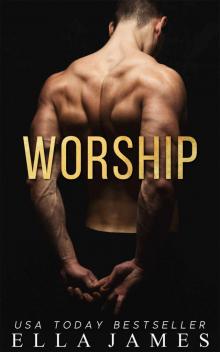 Worship (On My Knees Duet Book 1)
Worship (On My Knees Duet Book 1) Hate You Not: An Enemies to Lovers Romance
Hate You Not: An Enemies to Lovers Romance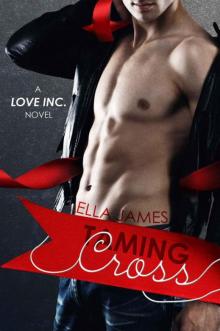 Taming Cross
Taming Cross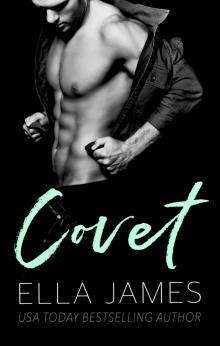 Covet : A Standalone Forbidden Romance
Covet : A Standalone Forbidden Romance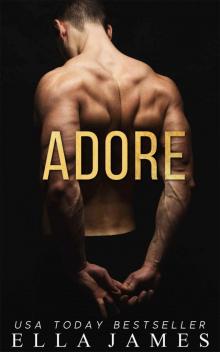 Adore (On My Knees Duet Book 2)
Adore (On My Knees Duet Book 2)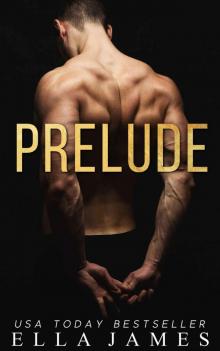 Prelude (On My Knees Duet)
Prelude (On My Knees Duet) My Heart for Yours: A Standalone Forbidden Romance
My Heart for Yours: A Standalone Forbidden Romance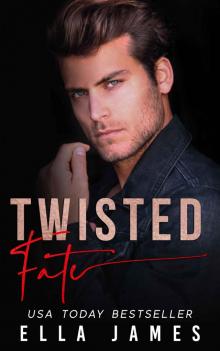 Twisted Fate: A Forbidden Romance
Twisted Fate: A Forbidden Romance